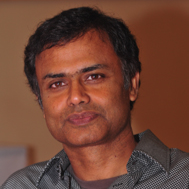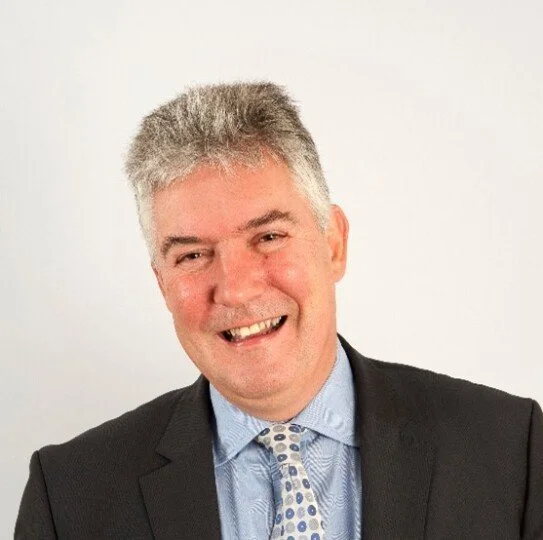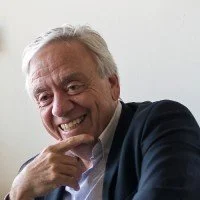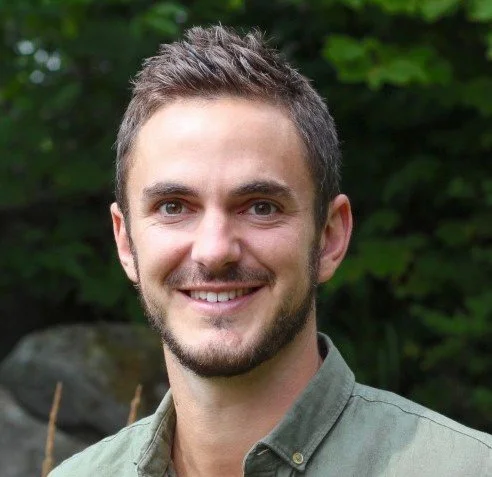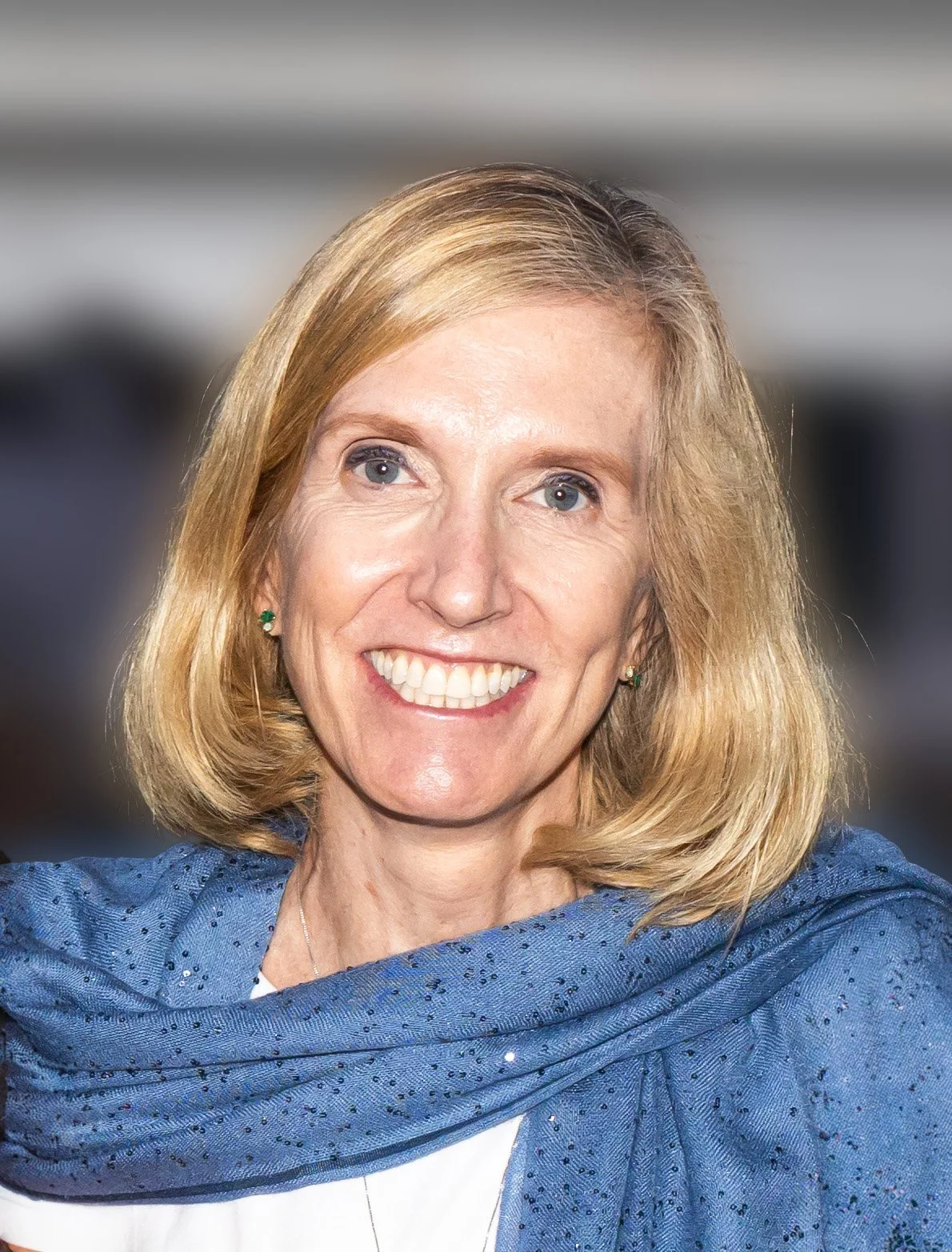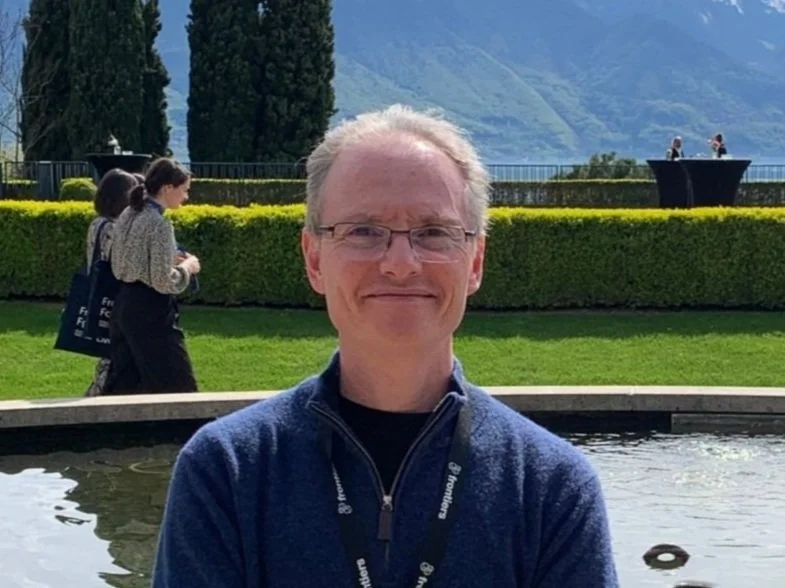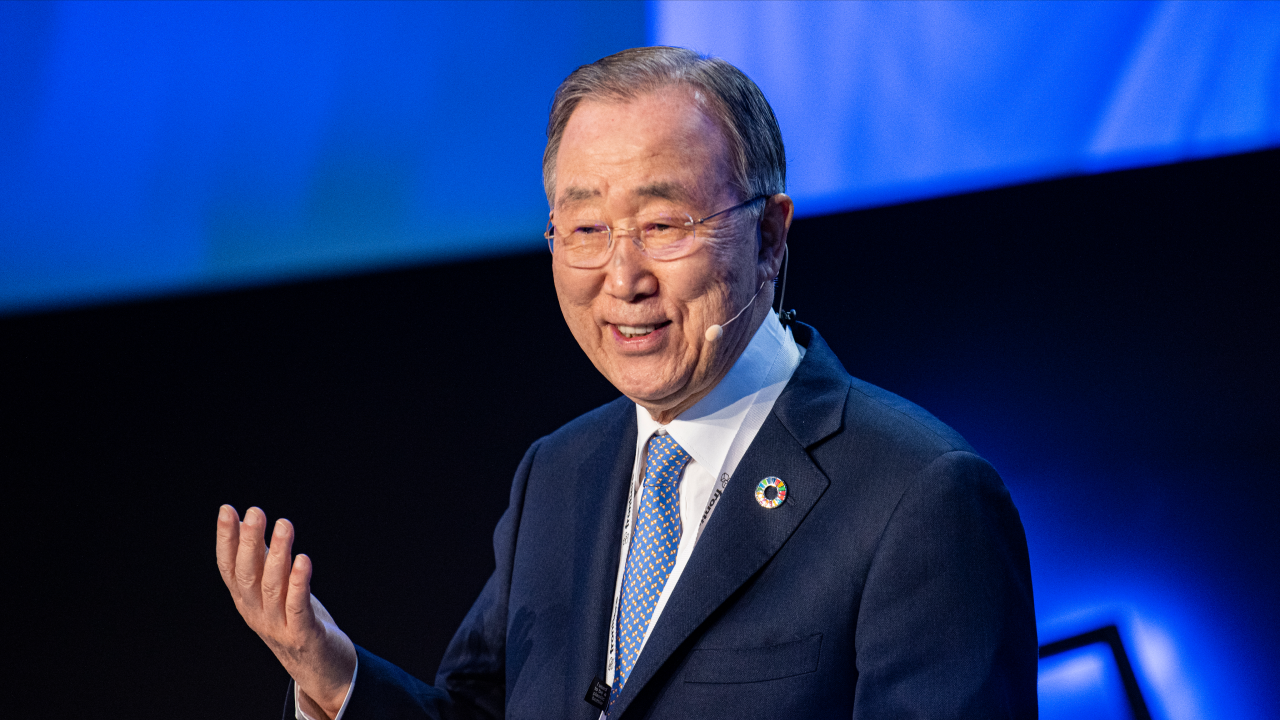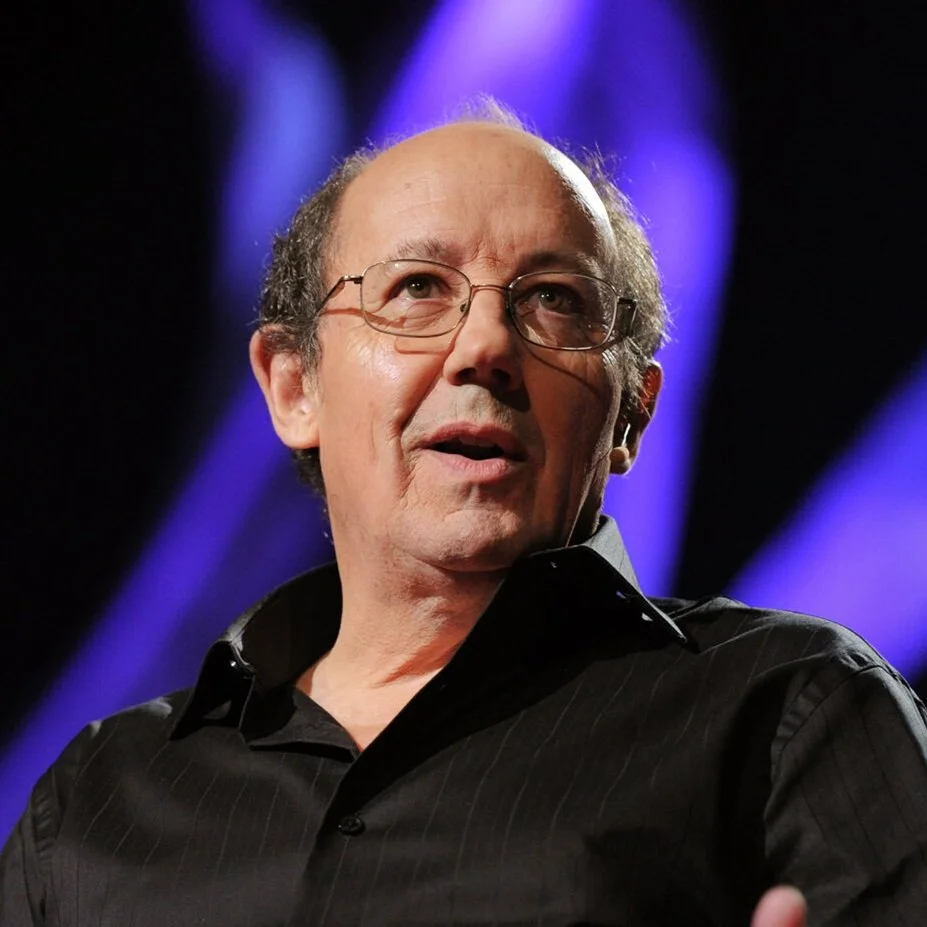
Videos from previous speakers
Thanks to science, we have never lived longer, healthier lives than we do today – but the challenges we face have never been greater or more complex. Hear from previous Frontiers Forum speakers on science-led solutions for issues ranging from healthspans to COVID-19, economics to genomics, and ecological restoration to sustainable agriculture.

Prof Kaushik Roy explores how next generation AI hardware—powered by brain inspired algorithms—can break the memory wall and enable faster, more efficient, and adaptable AI.
Prof Frank Kelly explores how the climate crisis exacerbates plastic pollution—affecting the distribution, exposure, and impacts of plastics across ecosystems—and the actions needed to drive future solutions and systemic change.
Prof Axel Cleeremans explores consciousness science as it enters a new phase—moving beyond debate toward testable theories and collaborative research—and why this transition matters more than ever.
Prof Masanori Aikawa explores how a comprehensive, integrative systems approach—using omics technologies, big data, and AI—could transform cardiovascular disease treatment worldwide.
Prof David Julian McClements and Prof David Kaplan explore the potential for hybrid alternative protein-based foods as healthier, tastier, more sustainable alternatives to animal products.
Prof Martin Siegert examines the technical feasibility, long-term costs, environmental risks, and governance limitations of five approaches polar geoengineering tools as a climate mitigation strategy.
Prof Harris Lewin outlines the next phase of the Earth BioGenome Project (EBP), which aims to sequence the DNA of all known eukaryotic species to protect biodiversity, improve global health, and drive scientific innovation.
Prof Paul Cotter explores how omics-based mapping of interconnected microbial networks is transforming our understanding of agri-food system microbiomes.
Prof Raymond Schiffelers explores a new point-of-care model for affordable, on-demand production of personalized nucleic acid nanomedicines that could revolutionize how hospitals treat rare diseases.
Prof Henry Markram explores a new open-source model of brain metabolism which could accelerate research into interventions to protect and repair the aging brain.
Prof Robert Hancock explores how systems immunology could revolutionize sepsis diagnosis and treatment—improving patient outcomes and saving millions of lives.
Dr Enric Sala explores the wonders of untouched marine ecosystems and the practical changes we can all make to preserve and protect our oceans.
Prof Kazunari Domen explores new technologies in solar water splitting to create cost-effective renewable hydrogen and meet global energy demands.
Prof Sergey Shabala explores precision breeding strategies for optimizing stress tolerance in crops—reducing their vulnerability to climate extremes and boosting food security.
Prof Brigitte Mauch-Mani explores how induced resistance in plants can help reduce pesticide use, increase crop resilience, and boost crop quality.
Prof Leo Marcelis explores how dynamic environmental conditions could revolutionize vertical farming—maximizing productivity and profitability and helping to supply nutritious food to growing populations.
Prof Rob Knight explores key insights into the fast-moving field of microbiome research—from mapping and analyzing diverse microbiomes to clinical applications, and the use of AI.
Dr Eric Dinerstein explores next steps in the habitat conservation of rare and threatened species as part of a larger global biodiversity strategy to counteract the ongoing sixth mass extinction driven by human activities.
Prof Mat Collins explores expected climate hazards in different parts of the world, and how to move from assessing these to effective mitigation and adaptation actions.
Prof Drew Shindell explores why methane emissions are rising faster than projected, what this means for climate targets, and cost-effective strategies for methane mitigation.
Prof Michel Goldman explores how interdisciplinary innovations in drug development, personalized care, modeling, and more are driving the future of medicine.
Prof Thomas Crowther explores how thriving natural habitats are improving local livelihoods while addressing the twin crises of biodiversity loss and climate change.
Dr Kari Nadeau and colleagues explored links between climate change and immune dysregulation, and solutions for reducing climate-related impacts on human health.
Prof Marc Struelens and colleagues explored the power of pathogen genomic data for informing public health responses and treatments to protect the world against the next pandemic.
Dr Eric Topol, in conversation with Vivienne Parry OBE explored the how AI will shape the future of healthcare – from medical forecasting technologies to doctor-patient relationships to bridging gaps in health equality.
Dr Luca Brocca and colleagues explored the groundbreaking Digital Twin Earth Hydrology Platform, how it can enhance flood and landslide prediction and optimize water resource management in the face of climate change.
Prof Yoram Vodovotz and colleagues explored explored links among stress, inflammation, cognition, and behavior—and how these may spread and scale, with potentially far-reaching consequences.
Prof Carlos Duarte and colleagues explored the key results from breakthrough "KMAP Global Ocean Gene Catalog 1.0" and its implications for sustainable value generation from the blue economy.
Prof Martin Siegert and colleagues discussed the amount of temperature change we can expect after CO₂ emissions from human activities reach net zero, and how this can be built into climate models.
Prof Gerold Stucki and colleagues examine how the integration of biological and lived experiences of health could revolutionize health systems and strategies.
Dr Paul Behrens explores how a Great Food Transition and other radical transformations can avert the climate crisis and steer humanity toward a hopeful, healthier future.
Prof Barbara Natterson-Horowitz and colleagues examine how evolutionary medicine can help inspire new ways to prevent and treat disease.
Prof Thomas Hartung and colleagues take a deep dive into the scientific, technological and ethical steps for realizing the full potential of organoid intelligence.
Dr Kamila Markram
Co-founder and CEO, Frontiers
Dr Kamila Markram describes how science has improved human lives over the past 200 years and the consequences of this on the Earth's planetary boundaries – ending with an urgent message to accelerate the global transition to open science to solve the climate crisis before it's too late.
Al Gore
Former Vice President and Nobel Laureate | USA
Al Gore speaks on the need for open science, collaboration, accountability and transparency in reaching our climate goals and achieving effective decarbonization efforts across the global economy.
Ban Ki-moon
United Nations | South Korea
Ban Ki-moon explains the need for global solutions to address global crises such as armed conflict, pandemics, and climate change that are inherently intertwined and interconnected.
Dr Jane Goodall
Jane Goodall Institute | UK
Dr Goodall outlines why she believes humanity’s indomitable spirit will overcome the climate crisis, and how the scientific community adds to her hope for the future.
Prof Johan Rockström
Potsdam Institute for Climate Impact Research | Germany
Prof Rockström gives crucial scientific evidence to stay within 1.5°C of warming to keep our planet in the only state we know that can support humanity, the Holocene.
Prof Yuval Noah Harari
Hebrew University of Jerusalem | Israel
Prof Harari explains the potential for artificial intelligence to become our planet’s first inorganic lifeform and the threat this ‘alien’ intelligence poses to human civilizations, without becoming conscious or able to navigate the physical world.
Prof Cynthia Kenyon
Calico Life Sciences | USA
Prof Kenyon outlines newly discovered treatments to extend health and lifespans in animals, and explains what we need to do to translate these findings to humans.
Prof Rudolf Jaenisch
Massachusetts Institute of Technology | USA
Prof Jaenisch presents evidence that SARS-CoV-2 RNA can retro-integrate into the human genome, postulating whether this could explain why some people experience long COVID.
Prof Kevin Esvelt
Massachusetts Institute of Technology | USA
Prof Esvelt outlines our increasingly powerful ability to genetically edit and reprogram entire species – and the defenses, checks, and balances needed to mitigate any potential unintended consequences from ecological engineering.
Dr Britt Wray
Stanford University | USA
Dr Wray reveals a surprising truth: while climate change and ecological crises can push us into a state of eco-anxiety, numbness, and fatalism, this grief can also mobilize and spark action that both improves mental health and benefits the planet.
Dr Seth Berkley
Gavi, the Vaccine Alliance | Switzerland
Dr Berkley explains the historic challenges to vaccinating people in low-income countries and how Gavi has successfully overcome these problems.
Prof Johan Rockström, Prof Yuval Noah Harari, Prof Mary Scholes and Vivienne Parry
Prof Rockström, Prof Harari, and Prof Scholes discuss the challenges of reaching net zero, what additional science is required to make the transition possible, effective communication strategies and policies to mobilize the stakeholders involved, and how equity can be achieved on a global scale.
Frontiers Planet Prize
Prof Carlos Peres
University of East Anglia | UK
United Kingdom International Champion Prof Peres demonstrates that community-based nature conservation programs can improve the livelihoods of rural families living in Amazonian protected areas.
Frontiers Planet Prize
Prof Mark New
University of Cape Town | South Africa
South Africa International Champion Prof New shows that removing alien invasive trees from water catchments can reduce water stress during droughts in South Africa – filling an evidence gap on the efficacy of habitat restoration.
Frontiers Planet Prize
Dr Paul Behrens
Leiden University | Netherlands
Netherlands International Champion Dr Behrens quantifies the reduction in greenhouse gas emissions if high-income countries eat less meat and restore land spared from animal farming.
Frontiers Planet Prize
Prof Baojing Gu
Zhejiang University | China
China International Champion Prof Gu shows a map of how nitrogen emissions contribute to deadly air pollution, and that ammonia is a better target than nitrogen oxides for tackling this global health threat.
Frontiers Community Summit
Dr Mirjam Eckert
Chief Publishing Officer, Frontiers
Dr Mirjam Eckert shows how quality at scale is possible, illustrating how this has been achieved through the journeys undertaken by Frontiers’ 194 journals and 1,500 research communities… and counting.
Frontiers Community Summit
Dr Kamila Markram
Co-founder and CEO, Frontiers
Dr Kamila Markram outlines progress on the global transition to open science – and how this will accelerate solutions for healthy lives on a healthy planet.
Frontiers Community Summit
Dr Fred Fenter
Chief Executive Editor, Frontiers
Dr Fred Fenter compares the cost of publishing open access with traditional subscription models – and explains how Frontiers is working with institutions on simple and transparent partnerships plus to recognize the work of our editors.
Frontiers Community Summit
Daniel Petrariu
Chief Technology Officer, Frontiers
Daniel Petrariu explains how we co-create technologies and tools with our editors to safeguard integrity and ensure quality control at every stage of the journal process.
Frontiers Community Summit
Dimitri Christodoulou
Director of Publishing Operations, Frontiers
Everything published by Frontiers is out in the open – fully accountable and available for scrutiny by all. Dimitri Christodoulou outlines quality control processes and tools for ensuring scientific excellence at scale.
Frontiers Community Summit
Dr Laure Sonnier
Executive Editor, Frontiers in Science, Frontiers
Dr Laure Sonnier introduces Frontiers’ flagship, multidisciplinary, open access journal, focused on transformational science for healthy lives on a healthy planet.
Keynote | Ove Hoegh-Guldberg
University of Queensland, Australia
Prof Hoegh-Guldberg discusses global coral reef health, and talks with Prof Maoz Fine, Lisa Carne, and Dr Nancy Knowlton on protecting these ecosystems.
Keynote | Johan Rockström
Potsdam Institute for Climate Impact Research, Germany
Prof Rockström outlines critical Earth system tipping points, and talks with Prof Peng Gong, Prof Felix Dakora, and Prof Phoebe Koundouri on restoring planetary boundaries.
Keynote | Mark Adams
Swinburne University of Technology, Australia
Prof Adams outlines the latest wildfire science, and talks with UNEP’s Doreen Robinson, ecologist Prof Michelle Mack, and environmental activist Sunita Narain on solutions for local ecosystems and communities.
Keynote | Jennifer Doudna
UC Berkeley, USA
The Nobel winner shows how CRISPR gene therapy is helping patients and discusses access and ethical considerations with gene drive pioneer Prof Andrea Crisanti, bioethicist Prof Françoise Baylis, and WHO Chief Scientist Dr Soumya Swaminathan.
Keynote | Al Gore
Former US Vice President
Vice President Gore outlines encouraging progress on the sustainability revolution, then discusses climate change and emissions reductions with European Green Deal Advisor Kurt Vandenberghe, climate modeler Dr Joeri Rogelj, and science historian Prof Naomi Oreskes.
Keynote | Axel Cleeremans
Université libre de Bruxelles, Belgium
Prof Axel Cleeremans takes a journey through leading theories of consciousness, and discusses a radical new approach to consciousness research with fellow world experts Prof Anil Seth, Prof Liad Mudrik, and Dr Steve Fleming.
Keynote | Kongjian Yu
Peking University, China
Prof Kongjian Yu shows how replacing concrete with nature-based solutions brings biodiversity and beauty to city centers while cleansing water and better managing floods, and discusses water management with cross-disciplinary experts.
Esther Duflo
MIT, USA
Hear from the Nobel Prize winner on opportunities from the Covid crisis for a stronger and more united global society – based on her pioneering, evidence-based approach to economics.
Harris Lewin
UC Davis, USA
Hear how powerful new DNA sequencing technologies are helping global efforts to preserve biodiversity and sustain human societies.
David Christian
Macquarie University
An education revolution through teaching Big History – a wide-angle approach covering 4.5 billion years and multiple disciplines – could better prepare our children to manage planet Earth.
David Sinclair
Harvard University
Renowned longevity researcher David Sinclair believes aging is not inevitable but a treatable condition. He explains why we age – and how we can reverse aging to extend human health and lifespans.
Anna Rosling Rönnlund
Gapminder Foundation
Is the world as bad as you think? The co-author of the bestselling book “Factfulness” dismantles the mega-misconceptions shaping our worldview and shows what the world really looks like.
Grégoire Courtine
EPFL
Hear about incredible new technology that has allowed paraplegics to walk again – thanks to precise electrical stimulation of their spinal cords via wireless spinal implants.
Stephan Mergenthaler
World Economic Forum
Do you understand the links between migration, climate change, and social media? New maps allow us to see links between global issues and developments more easily – plus find relevant research.
Claire Kremen
University of British Columbia
Volvo Environment Prize winner Claire Kremen presents working lands conservation – where sustainable agriculture helps maintain biodiversity and ecosystems while sustaining the capacity for food production.
Spencer Wells
Insitome
Consumer genomics pioneer Spencer Wells discusses privacy and other consequences of today's era where more and more people have their DNA sequence – or that of a relative – online.
Bracken Darrell, Mehmood Khan, Stefan von Holtzbrinck and Henry Markram
The CEOs of Logitech, Life Biosciences and the Holtzbrinck Publishing Group, together with the EPFL's Henry Markram, discuss innovation and successful technology transfer.
Jayasree K. Iyer
Access to Medicine Foundation
A celebration of the incredible advances in medical and healthcare access over the past decade, and discussion of the innovations still needed to bring access to medicine to everyone, all around the world.
Anne Bowser
The Wilson Center
Discover Earth Challenge 2020, a global environmental effort to engage millions of people to collect and share 1 billion data points on air and water quality, biodiversity, pollution, and health.
Matthew McCabe
King Abdullah University of Science and Technology
Learn how high-resolution data from drones and shoe-box satellites is helping efforts to grow better quality crops and improve water management through precision agriculture.
Mavi Sánchez-Vives
Institute of Biomedical Research Augusto Pi y Suñer
See how new virtual reality tools are shedding light on how the brain works and providing new tools for changing our perspectives and behaviors, including for therapy.
Nancy Knowlton
Smithsonian’s National Museum of Natural History
As a counter to depressing news of coral bleaching and plastic pollution, Nancy Knowlton highlights recent conservation successes – and why we need to talk about them more often.
Mark Post
Maastricht University
After his on-air demonstration that a beef burger made from cultured cells is not only edible, but also tasty, Mark Post outlines a timeline for an affordable, animal-free system for growing meat in the lab.
Idan Segev
Hebrew University of Jerusalem
From genes to machines – leading neuroscientist Idan Segev gives an overview of our unique biological features and how we may use new technologies to change ourselves.
Tony Wyss-Coray
Stanford School of Medicine
An update on the incredible discovery that blood from young mice can rejuvenate the brains of old mice – and the prospect of treating neurodegenerative diseases and reversing aging.
Thomas Hartung
Johns Hopkins University Bloomberg School of Public Health
Can animal testing be eliminated? Thomas Hartung examines the future of toxicity testing, including the use of big data and human in vitro models.
Marleen Temmerman
Aga Khan University
Women make up half the world’s population – and create the other half. Learn about efforts to ensure all women, as well as men, have access to sexual and reproductive health information and services.

